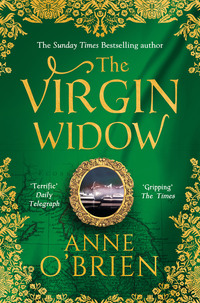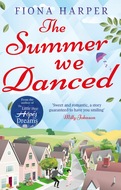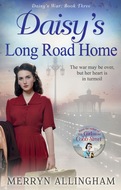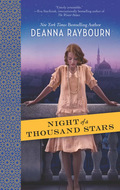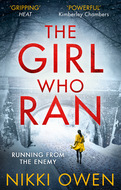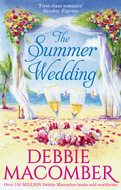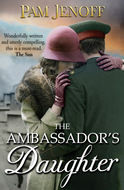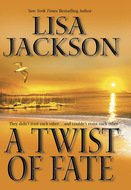Kitap dosya olarak indirilemez ancak uygulamamız üzerinden veya online olarak web sitemizden okunabilir.
Kitabı oku: «Virgin Widow», sayfa 3
‘But not to be present at his enthronement? God’s Blood! It’s a deliberate provocation. An insult to our name and my position.’
‘There may be a reason—’
‘The only reason I can think of is a personal slight against me and mine. He should have been here. You can’t persuade me that the King was not aware of how his absence would be read by those who wish us ill.’
But who would wish us ill? I had known nothing but love and care in my nine years. The Lancastrians, of course, would have no affection for the Earl of Warwick, but they were defeated, old King Henry touched in his mind and kept fast in the Tower, his queen and son in exile, whilst King Edward held my father in high regard. So who would wish to cause us harm?
‘There may be other demands on his time…’ the Countess persisted.
‘Woodville demands. It’s that woman’s doing. She has the King wound round her manipulating fingers, as tight as any bowstring. I wager she kept him from York. Has the King no sense…?’
‘Hush! You’ll be overheard.’
‘I care not.’
I was increasingly aware of Richard’s taut figure beside me. When I edged close, took hold of his sleeve and pulled to attract his attention, to try to discover the reason for his stark pallor, the stormy glitter of his eyes, he snatched his arm away, which movement caught the Earl’s eye; as he glowered in Richard’s direction, I thought for the briefest of moments that he would turn his anger on this youngest brother of the King. He frowned at the pair of us as if we had been discovered in some mischief, sharp words rising to his lips.
But the Earl’s face softened as he moved towards us.
‘Anne.’ He touched my shoulder, a gentle clasp. Smiled at Richard, and there was no hostility there. ‘Don’t be concerned, boy. Whatever is between your brother and myself does not rest on your back. You need broader shoulders than yours yet to take on your brother’s misdemeanours. It’s not for you to worry about.’
‘No, sir.’ Richard dropped his eyes.
‘Is my uncle George still Archbishop, even though the King did not come?’ I asked.
‘He is.’ My childish query made my father laugh. ‘We’ll forget Edward and celebrate with your uncle, for his and our own promotion. It’s a proud day, after all.’
Yet the incident of the empty thrones had cast a cloud over the whole ceremony and again over the sumptuous feast where we continued to celebrate, when it was necessary for the chairs set for the King and Queen to be shuffled quickly away and the seating rearranged. The music and singing, the magnificent banquet, the noisy conversations of the Nevilles and their dependents neatly covered over any lack in the occasion, but it remained there, an unease, as unpleasant as a grub in the heart of an apricot. I did not understand, but I remembered the harsh reaction to the name of Woodville.
I cornered Richard before he could make his escape that night. He still had a bleak expression, but that had never stopped me. ‘Why was my father so angry?’
‘You must ask him.’
‘You think the Earl would tell me?’ I was of an age to resent being kept in the dark. ‘I’m asking you.’ Sympathy at the dark emotion in his eyes moved my inquisitive heart. ‘Tell me about Elizabeth Woodville.’
It was as if I had touched a nerve and his reply was without control. ‘My brother should never have married her. My mother hates her. I hate her too.’
Without further words or any courtesy he turned his back and leapt up the stairs two at a time. He kept his distance and his silence on the matter for the rest of the visit, whilst I was left to consider the strains that could tear a family apart so, where ambition and personal hatreds could replace compassion and affection that were at the heart of my own experience. I would hate it too if my family was as wrenched apart as Richard’s.
My childhood passed in an even seam with Richard a constant. Our paths crossed as those in an extended family must. At prayers in our chapel. At dinner in the Great Hall and the supper at the end of the day. Through the rains and snows of winter, the days that beckoned us outside in summer. But nothing of note happened between us. His time was demanded by the Master of Henchmen, mine by Lady Masham and the Countess.
As I grew I spied on Richard less often. Perhaps I was more self-conscious of my status in the household. Neville heiresses did not skulk and spy as a child might. But I knew that he learned to wield a sword with skill, that his talent with a light bow was praiseworthy, that he could couch a lance in the tilting yard to hit the quintain foursquare and ride to safety and not be thwacked for carelessness between the shoulder blades or on the side of the head by the revolving bag of sand. He was spread-eagled in the dirt less often.
I applied myself to my lessons. It was the Countess’s wish that her daughters learn to read and write as any cultured family would, and so we did. Mastering the skill, I read the tales of King Arthur and his knights with sighing pleasure. I wept over the doomed lovers Tristram and Isolde. Sir Lancelot of the Lake and his forbidden love for Guinevere warmed my romantic heart. The painted illustration in the precious book showed Guinevere to have long golden hair, too much like Isabel for my taste. And Lancelot was tall and broad with golden hair to his shoulders as he stood in heroic pose with sword in hand and a smile for his lady. Nothing like Richard, who would never be fair and broad and scowled more often than he smiled. But I could dream and I did.
I recall little in detail of all those days, until the momentous day of the marriage proposal, except for the Twelfth Night celebrations. After the processions, the festive feast with the boar’s head and the outrageous pranks of the Lord of Misrule, we exchanged gifts. I still have the one that Richard gave me. It has travelled with me into exile, into un-numbered dangers from imminent battle, and finally into captivity. I have never seen its like and would be dismayed if it were ever lost to me. Richard must have bought it from a travelling peddler when he had visited York. On its presentation I tore impatiently at the leather wrapping.
‘Oh! Oh, Richard!’
I laughed at the childish whimsy of it. Not of any intrinsic value, yet it was cunningly contrived of metal, a little hollow bird that would sit in the palm of my hand, plump and charming, its beak agape like a fledgling, its feathers well marked on the tiny wings that were arched on its back. When I moved the little lever on the side, the bird’s tongue waggled back and forth. When I blew across the hollow tail, it emitted a warbling whistle. I practised to everyone’s amusement.
‘Richard. Thank you.’ I was lost for words, but I made the appropriate curtsy, lifting my new damask skirts and much prized silken underskirt with some semblance of elegance.
He flushed. Bowed in reply with more flamboyance than I had previously seen. Kissed my fingers as if I were a great lady. His lessons in chivalry had gone on apace.
‘It is my pleasure. The little bird is charming, as are you, Cousin Anne.’
When he drew me to my full height and kissed my cheeks, one and then the other, and then my lips in cousinly greeting, I felt hot and cold at the same time, my face flushed with bright colour. Francis Lovell’s friendly salutes never had that effect on me.
I think it was then, with the imprint of Richard’s kiss on my astonished lips, that I determined, with true Neville arrogance, that I would have him as my own. No other girl would have him, I swore silently with one of the Earl’s more colourful oaths. Richard, I wager, felt no such significance in his gift from me. He was more taken up with the horse-harness the Earl had given him, an outrageously flamboyant affair, all polished leather with enamel and gilded fittings.
And what did I give to Richard Plantagenet? What would I, a ten-year-old girl, give to a prince who had everything, whose brother was King of England? With many doubts and some maternal advice I plied a needle. My mother said it would be good practice and Richard would be too kind to refuse my offering, however it turned out. I scowled at the implication, but stitched industriously. I stitched through the autumn months when the days grew short and I had to squint in candlelight to make for him an undershirt in fine linen, to fit under a light metal-and-velvet brigandine that was a present from his brother and his favourite garment. A mundane choice of gift from me, but I turned it into an object of fantasy by embroidering Richard’s heraldic motifs on the breast in silk thread and a few leftover strands of gold. A white rose for the house of York. The Sun in Splendour that his brother had adopted for the Yorkist emblem after the battle of Mortimer’s Cross when the miracle of the three suns appeared together in the heavens. And for Richard himself, his own device of a white boar. I was not displeased with the result. The rays of the sun were haphazard. Isabel scoffed that the boar had more of a resemblance to the sheep on the hills beyond Middleham. But my mother declared it more than passable and I presented it with all the pride of my hard labours.
Richard accepted it as if it were the most costly garment from the fashion-conscious Court of Burgundy. He did not remark on the less-than-even stitches as Isabel had. Nor did he laugh at my woeful depiction of the boar.
‘It is exactly what I could wish for.’
I blushed with pride. I know he wore it, even when much washed and frayed at cuff and neck and most of the embroidery long gone.
I might have decided that I wanted Richard Plantagenet, but I did not love him. Sometimes I hated him, and he me with equal virulence, although much of the tension between us was of my own making. As I grew I struggled with conflicting emotions that drove me to be capricious with him.
Richard and his horse had fallen heavily in a bout in the tilt yard and, mount limping, he had been dispatched to the stables. I had been looking for someone to annoy and here, on that particular morning, was the perfect target. I had no pity. He was dishevelled and sweaty, one sleeve of his leather jacket ripped almost away at the shoulder seam. Favouring one shoulder with a heavy wince of pain, he hissed between his teeth as he moved and stretched about his task. There was a raw graze along one cheekbone; his hair looked as if it had not seen a comb for days. In the dusty gloom of the stall he spoke with soft words to the restive horse, running his hand down a foreleg. Beside him on a bench was the makings of a hot poultice, steaming and aromatic, and a roll of stalwart bandaging. The horse shifted uneasily. I could see the white of its eye as it whickered and jibbed when Richard touched a sore spot. With long strokes, completely absorbed in his task so that he was unaware of my presence, he began to apply the hot mess, the remedy for all equine ills according to Master Sutton, the Earl’s head groom. He worked smoothly, gently, despite his own discomfort. I saw that his horse’s well-being came before his own ills, but I was not in the mood to admit to being impressed. I came to stand behind him.
‘What are you doing?’
‘As you see.’
He did not turn his head, or register my presence in any other way, and the answer did not please me. It had been a bad morning and I was in disgrace. Out of sorts since the moment I was roused from my bed, I was sullen and dull at my lessons. So I had to repeat them, but was even more uncooperative when Isabel had been released to freedom. Since Lady Masham had obviously prattled to my mother about my sins, the Countess sent me to the kitchens as punishment, to help in the making of candles for the household use. It was a fit task for a child who would not mind her lessons and was rude to her governess. Some practical work would soon set me to rights.
Isabel smirked. Francis Lovell laughed and refused to commiserate so, fingers burnt from hot tallow and a further sharp reprimand from the cook for my careless dipping of the long candles, I suppose I was out for blood at the short reply from Richard Plantagenet. I did not like to be ignored. I needed to wound and hurt.
‘Did you fall?’
‘Go away.’
I was not used to being spoken to like this, particularly not by a henchman, Duke of Gloucester, royal prince or not. ‘I will not. These are more my stables than yours! I suppose you were clumsy and caused the horse to fall.’
He looked up over his shoulder at me. Squinted at me as I stood outlined by light in the doorway. Then back to the task in hand. ‘I suppose I was.’
I had seen the pain and anxiety in his face, but I was not moved to show compassion. Why should I be the only occupant of the castle to suffer? ‘It will probably be crippled, poor thing. Not worth the keeping.’
‘It’s only a bad sprain. It will heal.’
‘It could be broken. See how the animal does not wish to put its foot down. My father has had horses destroyed for less.’
‘What do you know? Go away. You’re nothing but a nuisance.’
‘And you are changeling!’ Isabel was not the only one to listen to servants’ gossip. I had a ready store of disreputable information and, to my later shame, chose this moment to display it.
For a little time, to my disappointment, Richard did not react. He finished strapping the leg, tucked in the ends neatly, before straightening whilst I waited in the taut silence. As he drew himself to his full height I had to look up. I had not realised how tall he had grown over the weeks since his fourteenth birthday. His expression was not pleasant, his cheekbones stark beneath tight skin, and his dark eyes held mine as fierce as the talons of a hawk would hold down a rabbit before ripping it apart.
‘What did you say?’
I swallowed, but would not retreat even though common sense warned me that I should. Now I had all his attention, for good or ill. I stared back.
‘They say that you’re a changeling. That yours was an unnatural birth. That you came into this world with black hair to your shoulders, like an animal, and all your teeth already formed.’
‘Is that all?’ Undoubtedly a sneer. ‘What else do they say?’
I swallowed. Well, I would say it. ‘That you’re not well formed as a man should be. That you’ll never take to the field as a good soldier.’
‘And am I? You tell me what gossip says. What do you say?’
At the stern demand for truth rather than conjecture, I could not answer.
‘Why do you not answer? What do you see, Lady Anne Neville, from your self-righteous and selfappointed position of spreader of poisonous gossip? Am I such a monstrosity?’
I kept my chin high. ‘No.’
‘Why should I be a changeling?’ he demanded as if he had not heard my denial. ‘Because I do not bear the same physical appearance as my brother the King? The long bones and fair hair, like my brother Clarence or my sister the Lady Margaret? My dark hair is from the Neville breeding of my mother, Duchess Cecily. As for teeth I do not know, but I’m neither misbegotten nor a changeling.’
So he had heard the gossip too. Of course he would. And my repeating of it as an accusation had hurt him when his emotions were most compromised by his horse’s injury. I was undoubtedly in the wrong. The guilt smote heavily against my insensitive heart, a hammer blow to an anvil.
‘I did not think—’
‘No, you did not.’ There was no softening, and it struck me that he would be a dangerous enemy to have against you. Usually polite beyond measure, now he did not guard his words. ‘You should be ashamed of yourself to so slander a guest in your household. I think your mother the Countess would beat you if she knew.’
So did I.
‘I did not mean—’
‘Yes, you did. You would repeat what you heard, common tattle without foundation, as any kitchen wench might after a cup of ale. You’re no better than any one of our Lancastrian enemies who would use whatever means to blacken our name.’
He was wrong. I was not so deliberately vindictive, intent on destruction. Nor was I his enemy. Only childishly cruel with my words, demanding attention. Although perhaps there was little difference in the outcome. My attempt at silent self-justification did not make me feel any better.
‘I am sorry.’
‘So you should be.’
‘Forgive me.’
‘Of course.’ Now he withdrew into himself, face impassive, eyes flat. ‘As I must forgive a child who does not consider the repercussions of her taunts.’ He turned from me, brushing me off. But I could see his tense shoulders as he began once more to stroke the horse. Gentle hands for his injured animal even when furious with me. I would have given anything to take back those words. Perhaps I had lost his friendship for ever over a moment’s stupidity. I did not know what to do, but I could not leave it like this. Carefully I walked to his side and reached up to caress the animal’s neck.
‘He will be well,’ I assured in a small voice. I tried hard to prevent it from catching. ‘I only said it to hurt you. Master Sutton’s remedy is very good. My father says there’s none better.’ I stared at his unresponsive shoulders, willing him to turn and make it easy for me, but he didn’t. I took a breath. ‘I too had dark hair when I was born, and a lot of it.’
Richard did not reply, but ran his fingers through the animal’s tangled mane, teasing out the knots.
‘I don’t think I had my teeth. My nurse says I cried and fretted when my gums were sore.’
Nothing! He did not even bother to tell me to go away. Well, I would show him.
I lifted the embroidered fillet from my head and pulled off the linen veil, dropping them both carelessly on the straw. Then unpinned my bound and braided hair without compunction, a lengthy business undertaken every morning by Bessie. Shook it out so that it lay limply against my cheeks.
‘See. I too look nothing like my mother or my sister.’ I shook it again to loosen the tight weaving and my hair fell long and straight, past my shoulders, as dark as his.
‘No, you don’t.’ At least he was looking at me again.
‘Perhaps we are both changelings.’
‘Perhaps.’ There was the slightest curve to his mouth, but still nothing that could be called a smile. ‘Sometimes you are the Devil’s own brat.’
‘So Margery says.’ I smiled tentatively. So did he.
‘Does your shoulder hurt?’ I asked.
‘Yes. I fell on it when I rolled from my horse. But it is not deformed!’
I had the grace to drop my eyes. ‘I know. I only said it to wound.’
‘You succeeded. I thought you were my friend.’ He spoke to me as a brother to a younger sister, but still it pleased me. I was rarely admitted to such intimacy.
‘I am. Come with me, now. Margery has a salve that will bring out the bruise and give you some ease. She will stitch your jacket too.’
‘You should do it for your impertinence.’ Giving the horse a final pat, he gathered up the empty bowl and the unused bandages. ‘What will she say when she sees your hair?’ At last a true smile creased his lean cheeks.
‘She will be cross. So will Bessie.’ I sighed at the prospect of further punishment even as I accepted it as a price to pay to restore the closeness between us. I had learned one painful lesson. I must learn to guard my tongue. Richard might appear immune to the spurious gossip spread by adherents to Lancaster to hurt and maim, but he was not, and it would be a heartless friend who opened the wound. Richard Plantagenet had a surprising vulnerability.
I was not heartless and I would be his friend.
Chapter Three
MARRIAGE began to loom interestingly on the Neville front.
In the following year my father was absent more often than he was present. The household continued to keep its usual efficient order with the Countess at the head of affairs, but she missed him, and as I grew I sensed that something out of the way was afoot. Sometimes it was difficult for her to smile; she rarely laughed. At dinner when she sat in place of honour I could see, when I dragged my thoughts from my own concerns, that she picked at the dishes presented to her. She was pale and I think did not sleep well.
‘Where is he? Is my father at Calais?’ I would ask my mother. The Earl was often called upon to be there to oversee the defence of this most important possession on the coast of Europe.
‘No. The King has sent him to France again.’
‘Why?’
‘To make an alliance between our two countries.’
‘Will it be good for us?’
‘Yes. Your father thinks so.’
‘Why does he not sign with France, in the King’s name? Then he could come home.’
My mother’s brow knitted. ‘Because, my inquisitive daughter, King Edward is not in agreement. He would prefer an arrangement with Burgundy, rather than France.’
‘Is he arranging my betrothal?’ This was Isabel. At sixteen years Isabel was of an age or more to be wed or at least promised in a betrothal. So far no arrangement had been made, a matter that was not to her liking.
‘Yes. I think it is in my lord’s mind.’ A caustic reply for so celebratory an event.
‘Will it be a foreign lord? Will I have to live beyond the Channel?’ Isabel was relentless. For a moment, she looked doubtful at leaving home and family so far behind. Then her expression brightened again as if marriage to a foreign prince would please her mightily.
‘I’m not certain.’
‘Oh. Will Father tell me when he returns?’
‘He might—if his plans have progressed so far.’ The Countess’s brief smile held a wisp of dry humour. ‘Don’t worry, Isabel. I am sure it will be a match made in heaven.’
But in spite of this amusement at Isabel’s dreaming of a handsome knight, there was some issue here. My mother’s expression became even more strained, a thin line of worry between her brows as she made an excuse of a word with the steward to leave the supper table. Isabel was too intent on her future glory as a bride, but I knew that the Countess was deliberately selective with her opinions. Or perhaps she herself was uncertain of the Earl’s intentions.
At least she had given me some ammunition.
‘I thought you would be much sought after,’ I needled. ‘No one appears to be rushing to our door to claim your hand.’
‘I shall be sought after. You’re too young to know anything about it.’
‘You’ll soon be too old. Fit only for a convent.’
‘I shall marry one of the greatest in the land.’ She was, to my delight, crosser by the minute. ‘Do you think the Earl of Warwick will allow his heiress to go unmarried? Or to be claimed by a man who lacks importance and authority?’
No. I did not. I thought as did Isabel that it would be of prime importance for the Earl to secure a bridegroom of comparable standing and wealth to our own. But there was an uncertainty, an unease, about the situation that I could not unravel. If at sixteen years, most heiresses were formally betrothed if not wed, why was it different for Isabel? And what if Isabel did not marry? What would happen to me as a younger daughter? Was I destined for a convent? A Bride of Christ? I shrank from the prospect, enclosing walls, a life of strict obedience and enforced poverty. I swore that was not for me. As for any prospective bridegroom for myself, I could not picture him. At eleven years I did not care greatly, but Isabel did and was decidedly ill tempered as the days and weeks passed with no remedy.
The Earl returned at the end of the month, but after the briefest of greetings, hardly more than the briefest of smiles for Isabel and myself, a quick exchange of words with Master Ellerby, he spent the day closeted with my mother. He was wont to be an indulgent father and we were used to more of his attention, but his face bore a return to moody preoccupation and displeasure. When we were reunited before supper, when my mother’s company and a cup of Bordeaux had smoothed out the lines, I decided to risk his indulgence. I stood in front of him where he lounged in his favourite chair before the fireplace.
‘Did you make the treaty with France, sir?’ I asked.
‘I see you’ve been following diplomatic policy.’ I saw an appreciative gleam in the eyes he slid towards the Countess.
‘Yes. It would be a good alliance for England.’
‘So it would, and, yes, I have. King Louis will make a strong ally.’
‘What is he like?’
‘Uncommonly ugly and remarkably devious. He spins a web to trap and hold friends and enemies alike.’
I liked the picture, having an interest in powerful men—how would I not with the Earl of Warwick as my father?—but I changed course in pursuit of information on Isabel’s marriage and my own destiny. ‘When do you leave again, Father? Do you return to France?’
‘I shall not leave.’ His dark brows drew together. ‘I’ve had my fill of King Edward’s Court. And the role of Royal Ambassador.’
‘Does the King not mind?’
‘No. He has other voices of counsel. The Woodvilles are knee-deep around him, by God!’
There was a harshness there. I think he addressed the Countess more than me. This was interesting, far more than Isabel’s non-existent bridegroom. ‘Why is the King no longer your friend, sir?’ I asked.
Slowly the Earl turned his head to look at me. ‘So you would discuss politics now, Mistress Anne.’
‘Yes, sir. I would.’
‘Anne—you step beyond what is seemly. You’re too young for such weighty matters.’ The Countess frowned at me.
‘I am not. I wish to know,’ I persisted, waiting. Would the Earl refuse? Would he brush me off like a child? My heart trembled at my boldness.
The Earl gave a ghost of a laugh. ‘You have grown up without my noticing,’ he remarked, then, startling me, lifted me off my feet to sit on the lid of the coffer beside him, leaning forwards, his forearms on his thighs, so that our eyes were on a level. I saw the shadowy remains of temper in his face despite the Countess’s soft handling and I knew that he would answer me honestly. I crossed my ankles and folded my hands demurely in my lap.
‘Once the King was my friend, that’s true,’ he spoke softly. ‘I stood at his right hand, as his counsellor. Do you understand?’
I nodded. ‘You are Great Chamberlain of England—the most powerful man in the whole country.’
The Earl laughed. ‘But the King is more powerful than I and now the King is finding his wings, like a young hawk. He has little more than twenty-five years under his belt. Young men find the need to test their strength.’
It seemed a vast age to me, but I nodded with solemn wisdom. ‘But why does that mean he no longer likes you?’ I asked, reducing it to the low level of a squabble between Isabel and myself.
The Earl’s face became as set as a Twelfth-Night mask. ‘Liking is not the issue, Anne, nor the blood of family, which should bind us together. The quarrel—if you will—began when the King married Elizabeth Woodville. Her family has Edward’s ear now, against all good sense.’
The Woodvilles again. I knew more of this by now, than I had at York. Margery’s gossip—deliciously forbidden—was that dark magic had been used, a spell cast to bring the King to his knees in thrall to the Woodville woman. I knew enough not to repeat it in this company.
‘Her father Lord Rivers is pre-eminent at Court as Lord Treasurer and with a new Earldom,’ the Earl continued. ‘He pushes the King in the direction of Burgundy rather than France, against my advice…’ The words grated and I thought he no longer realised he was speaking to me. ‘Marriages have been arranged between the Queen’s sisters and the unwed heirs of the most noble families in the land—young men to whom I myself would look for an alliance…’ He took a breath and smiled wryly. ‘But that’s not important to you yet.’
‘So the King does not talk to you any more,’ I persisted. Friendship was everything to me.
‘We are still cousins,’ the Earl said simply, ‘but the King is misguided and I think I have to watch my back. The Woodvilles are no friends of ours.’ His face set again, and I saw his fist clench on his knee. ‘No one will rob the Nevilles of their wealth and power.’
‘Your father helped the King to take the throne, you see,’ the Countess intervened to draw the sting, handing the Earl another cup of wine. ‘We would have expected some loyalty, but the King has decided to repay us by ignoring my lord’s advice. The Queen is a determined woman. She will promote her family at the expense of the great magnates of the realm.’
‘Certainly at my expense,’ the Earl growled. ‘Does that tell you all you want to know?’ He managed a smile. ‘There’s nothing to worry you, Anne—or you, Isabel. One day King Edward will see that my counsel is good.’ He stroked a finger down the length of my nose, then lifted me to the floor. ‘Then we shall be friends again.’
‘Yes, sir.’ It all seemed very plain and I was perfectly satisfied. The King was in the wrong. The Earl would be patient and would triumph. There was no doubt in my mind and I pitied the King for his bewitchment by the Woodville woman.
‘But have you got me a husband?’ Isabel interrupted with a scowl in my direction for capturing the centre of attention. She had been burning to ask since the Earl’s horse had first set foot on the bridge over the moat and could wait no longer.
A tightening of the muscles in his jaw made me think that this was one of the issues to displease my father. With a flicker of eyes, he appealed to the Countess. But when she nodded and the Earl smiled at Isabel, I decided I was misled.
‘Yes. I think I have.’
‘Who? When?’ Excitement vibrated from Isabel until she glowed with it, her fair skin lit from within so that her future beauty became spectacularly apparent. Even I had to admit it, even though it filled me with despair that I should never rival her.
Ücretsiz ön izlemeyi tamamladınız.
